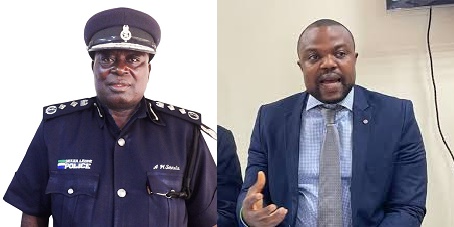The Campaign for Human Rights and Development International (CHRDI) has opposed the rampant arrests of members of the opposition parties by the Sierra Leone Police.
The CHRDI stated that the leadership of the Sierra Leone Police must provide training for its staff to ensure that they are aware of their actual role in society in order for them to understand that criticizing government doesn’t constitute incitement, and that the fundamental role of the force is to protect the people and not to stifle their constitutional rights.
CHRDI’s call is contained in a statement issued in response to the widely condemned arrest of an opposition politician last week.
Sidie Yahya Tunis, a spokesman for the main opposition All Peoples Congress (APC), was detained following a radio interview he granted, which the police deemed inciting.
CHRDI reminds that the main role of the Sierra Leone Police include detection of crime, apprehension of offenders, preservation of law and order, protection of property and enforcement of all laws and regulations’ for which the Police Force is charged, and not to assure the people of insecurity.
The statement, dated February 9 2022 reads: “After spending a night in a police cell, Mr Tunis was charged and released on Le200 million bail, according to CHRDI, which noted that the politician was asked to report to the Criminal Investigation Department, Monday, 14th February 2022”.
According to the campaign group, Tunis’ arrest is part of a pattern of arrests by the police in recent times targeting not just political opponents but also citizens who criticise the government.
It goes on to say that it noticed that freedom of expression and information, political parties’ right to association and their right to take part in public affairs amounted to little or nothing in the present reality of the country.
“CHRDI has observed with grave concern an increase in the arrest and prosecution of other citizens who speak up against the government or criticize the government and the leaders at State House. CHRDI is deeply concerned about this pattern of arrests of opposition leaders in Sierra Leone, as well as arrests of civilian people who criticize the government,” the group said.
“These arrests have a chilling effect on the people of Sierra Leone regarding their space to assemble freely and to freedom of expression. This pattern represents a blatant attempt to intimidate politicians and political activists and to silence the regular people who wish to express disapproval to the way the government of the day carries out its duties, promises and obligations,” it adds.
The arrest of Mr Tunis followed a string of arrests of opposition figures who were accused by the police of making inciting statements. And critics and rights groups like CHRDI fear that this may have something to do with the upcoming general elections.
Sierra Leone goes to the polls in 2023, according to the calendar of the National Electoral Commission.
In December alone, three prominent opposition politicians – Femi Claudius-Cole of the Unity Party; Diana Finda Konomanyi of the APC; and Dennis Bright of the National Grand Coalition, were either invited for questioning or detained. All three politicians were invited by the police for comments they made which the police deemed as unlawful.
According to CHRDI, the police’s actions contradict public pronouncements by President Julius Maada Bio about his government’s commitment to freedoms and human rights.
It cited international instruments which Sierra Leone is a party to and which require the country to respect human rights and rights to free expression and association.
CHRDI is a rights based social-policy advocacy organisation which draws attention to the responsibility of duty-bearers to uphold human rights. The organization says it also seeks to support rights-holders to claim their rights.
The organization therefore called out politicians to be measured in their statements, noting that while freedom of speech is important, it must be exercised with responsibilities.
“We urge all political leaders and activists to criticize based on facts, evidence, and data and to remember that an irresponsible speech may have far reaching effects,” it said.


 Post a comment
Post a comment








